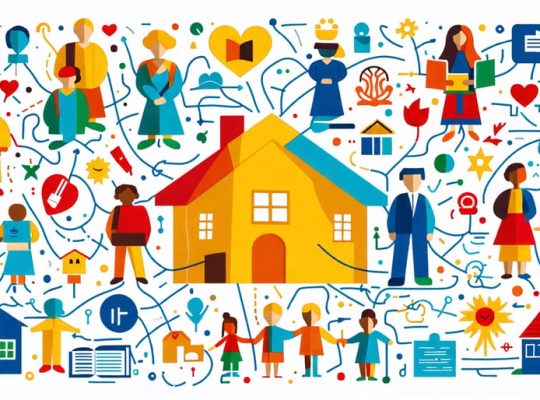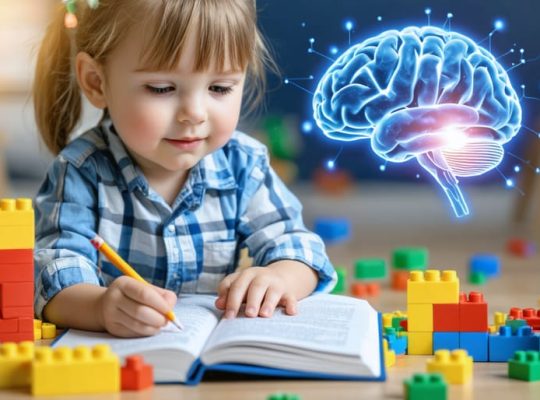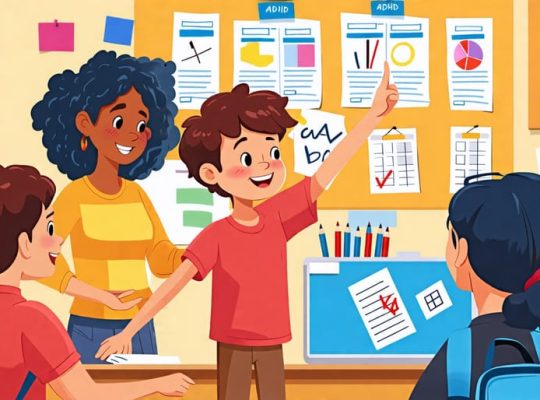Recognize the signs of peer pressure affecting your child’s mental health, such as changes in behavior, mood, interests, or friend groups. As peer pressure impacts mental health, foster open, non-judgmental communication to create a safe space for your child to share their experiences and feelings. Encourage your child’s individuality, self-esteem, and assertiveness skills to help them navigate peer influences while staying true to themselves. Collaborate with teachers and school counselors to create a supportive environment that promotes resilience and positive peer interactions.
Understanding Peer Pressure

Types of Peer Pressure
Peer pressure can take various forms, each with its own potential impact on a child’s mental health. Direct peer pressure involves explicit requests or demands from peers to engage in certain behaviors, such as trying drugs or alcohol, skipping school, or participating in risky activities. This type of pressure can be difficult for children to resist, as they may fear rejection or bullying if they don’t comply.
Indirect peer pressure, on the other hand, is more subtle. It occurs when children feel compelled to conform to the norms and expectations of their peer group, even without explicit requests. This can include dressing a certain way, listening to specific music, or adopting particular attitudes and beliefs. This can be particularly challenging in today’s digital age, where social media often amplifies these pressures.
Positive peer pressure can actually have beneficial effects on mental health. When children surround themselves with peers who engage in healthy behaviors, such as studying, exercising, or volunteering, they may feel encouraged to do the same. This can lead to increased self-esteem, a sense of belonging, and improved overall well-being.
However, negative peer pressure is the type that often raises concerns. When children feel pressured to engage in harmful or risky behaviors, such as substance abuse, bullying, or self-harm, it can take a serious toll on their mental health. They may experience anxiety, depression, low self-worth, and even trauma as a result of trying to fit in with the wrong crowd.

The Mental Health Consequences of Peer Pressure
Anxiety and Depression
Peer pressure can significantly contribute to the development of anxiety and depression in children. When children feel pressured to conform to certain standards or engage in activities that make them uncomfortable, they may experience heightened stress and self-doubt. As Dr. Sarah Thompson, a child psychologist, explains, “Children who regularly face peer pressure may start to question their own worth and abilities, leading to feelings of anxiety and inadequacy.”
Moreover, if children succumb to peer pressure and participate in risky behaviors or make poor choices, they may experience guilt, shame, and regret, which can further fuel anxiety and depression. One parent, Emily, shared her son’s story: “My son started hanging out with a new group of friends who encouraged him to skip school and experiment with drugs. He fell into a deep depression, feeling like he had let everyone down, including himself.”
It’s crucial for parents, teachers, and healthcare professionals to recognize the signs of peer pressure-induced anxiety and depression in children. These may include changes in behavior, withdrawal from activities they once enjoyed, difficulty sleeping, and a decline in academic performance. By providing a supportive, non-judgmental environment and encouraging open communication, adults can help children navigate the challenges of peer pressure and maintain good mental health.
Low Self-Esteem and Self-Worth
Peer pressure can have a profound impact on a child’s self-esteem and self-worth. When children feel pressured to conform to certain behaviors or attitudes to fit in with their peers, they may begin to doubt their own values, abilities, and worth as individuals. This can lead to a sense of inadequacy and a belief that they are not good enough unless they meet the expectations of their peer group.
Children who experience chronic peer pressure may develop negative self-talk, constantly criticizing themselves for not measuring up to their peers. They may also engage in unhealthy behaviors or take risks to gain acceptance, further eroding their self-respect and confidence. Over time, this can contribute to the development of mental health issues such as anxiety, depression, and low self-esteem.
It is crucial for parents, teachers, and caregivers to help children build a strong sense of self that is not dependent on the approval of others. Encouraging children to pursue their passions, celebrate their unique qualities, and surround themselves with supportive friends can help foster resilience in the face of peer pressure. By providing a safe, non-judgmental space for children to express their feelings and concerns, adults can help them navigate the challenges of peer relationships while maintaining a healthy sense of self-worth.
Risky Behaviors and Substance Abuse
Peer pressure can significantly influence a child’s decision to engage in risky behaviors or substance abuse. According to Dr. James Thompson, a child psychologist, “Children who feel a strong need to fit in with their peers may be more likely to participate in activities they know are dangerous or unhealthy, simply to avoid rejection or ridicule.”
Some common risky behaviors linked to peer pressure include underage drinking, smoking, drug use, and unsafe sexual practices. These activities can have severe consequences on a child’s physical and mental health, leading to addiction, injury, or long-term health problems.
Moreover, engaging in substance abuse as a means of coping with peer pressure can exacerbate mental health issues such as anxiety, depression, and low self-esteem. Sarah, a 16-year-old, shared her experience: “I started drinking at parties because all my friends were doing it. It made me feel accepted, but it also made my anxiety worse. I became dependent on alcohol to feel comfortable in social situations.”
Parents and educators must be aware of the signs that a child may be succumbing to peer pressure and engaging in risky behaviors. Open, non-judgmental communication and providing a strong support system can help children make healthier choices and resist negative influences.

Helping Children Cope with Peer Pressure
Building Resilience and Self-Confidence
Fostering resilience and self-confidence in children is crucial for helping them navigate the challenges of peer pressure. Start by maintaining open, honest communication with your child, creating a safe space for them to express their feelings and concerns without judgment. Encourage them to develop a strong sense of self by exploring their interests, talents, and values. Help them set realistic goals and celebrate their accomplishments, no matter how small, to boost their self-esteem.
Teach your child assertiveness skills, such as how to say “no” firmly and respectfully when faced with negative peer pressure. Role-play different scenarios to practice these skills in a supportive environment. Encourage them to surround themselves with positive, supportive friends who share their values and respect their boundaries.
Model resilience by sharing your own experiences of overcoming challenges and building resilience. Emphasize the importance of learning from setbacks and persevering through difficult times. Help your child develop healthy coping strategies, such as engaging in physical activity, practicing mindfulness, or expressing themselves through art or writing.
Finally, remind your child that seeking help when needed is a sign of strength, not weakness. Encourage them to reach out to trusted adults, such as parents, teachers, or counselors, when they feel overwhelmed or need guidance in dealing with peer pressure.
Open Communication and Support
Maintaining open lines of communication and fostering a supportive environment are crucial in helping children cope with peer pressure and protect their mental health. Parents and caregivers should make a conscious effort to create a safe, non-judgmental space where children feel comfortable sharing their thoughts, feelings, and experiences. Encourage active listening and validate their emotions, showing them that their concerns are being heard and understood.
Regularly check in with your child about their friendships, school life, and any challenges they may be facing. Ask open-ended questions and offer guidance and support without being overly intrusive. Help them develop problem-solving skills and brainstorm strategies to navigate difficult social situations while respecting their autonomy.
Teachers and school staff also play a vital role in creating a supportive environment. Implementing anti-bullying policies, promoting inclusivity, and encouraging positive peer interactions can help reduce the negative impact of peer pressure. Educators should be trained to recognize signs of distress and provide appropriate interventions or referrals to mental health professionals when necessary.
Remember, children who feel supported and connected to their family, friends, and community are more resilient and better equipped to handle the challenges of peer pressure. By prioritizing open communication and nurturing mental well-being, we can help children navigate the complexities of social dynamics and maintain positive mental health.
Encouraging Positive Peer Relationships
To foster positive peer relationships and minimize negative peer pressure, parents and educators should actively encourage children to develop a strong sense of self and to choose friends who share their values. Engaging children in open, non-judgmental conversations about their social experiences can help them feel supported and better equipped to navigate challenging situations. Encouraging participation in a diverse range of extracurricular activities can expose children to a wider pool of potential friends and help them develop their unique interests and skills.
Modeling healthy relationships and effective communication at home and in the classroom sets a strong foundation for children to build upon in their own friendships. Teaching children to set boundaries, express their feelings assertively, and respect others’ opinions can empower them to resist negative pressure and maintain positive connections. Regularly reinforcing the importance of kindness, empathy, and inclusivity can help children become more resilient to the effects of peer pressure and create a more supportive social environment for everyone.
By providing a strong support system and equipping children with the tools to cultivate healthy friendships, we can help them develop the confidence and self-assurance needed to thrive in the face of peer pressure and maintain good mental health.
Conclusion
In conclusion, peer pressure is a powerful force that can significantly impact children’s mental health. Throughout this article, we have explored the various ways in which peer influence can lead to negative outcomes, such as anxiety, depression, and risky behaviors. However, we have also highlighted the potential for positive peer influence and the importance of fostering supportive social connections.
As parents, teachers, and healthcare professionals, it is crucial that we remain vigilant and proactive in addressing the effects of peer pressure on children’s well-being. By staying informed, maintaining open communication, and providing a nurturing environment, we can help children navigate the challenges of peer influence and develop the resilience needed to thrive.
Remember, every child is unique, and their experiences with peer pressure may vary. By offering unconditional support, encouraging individuality, and promoting healthy coping mechanisms, we can empower children to make positive choices and maintain good mental health. For more insights on peer pressure and its impact on children, be sure to explore the resources available on our website.
Together, we can create a society that values the mental well-being of our children and provides them with the tools they need to succeed in the face of peer pressure.







